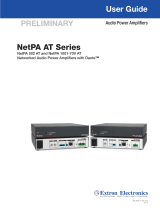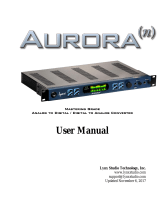
Revision Date: 07/30/20
3.0 Unicast and Multicast
By default, Dante routing is done by unicast Flow, meaning that the routing of up to four
channels between two devices uses up a single unicast Flow [Figure 3]. A unicast Flow cannot
be routed to multiple Receivers. With unicast routing, extraneous network traffic is typically
avoided.
[Figure 3 – Two Unicast Flows]
In cases where a single Dante Transmitter must be routed to many Dante Receivers, having a
separate unicast Flow per Receiver not only uses up Flows but also increases network
bandwidth use. In these cases, creating a single multicast Flow is recommended for routing to
many Receivers without using up Flows [Figures 4 & 5]. Dante Controller will present a message
when a Multicast Flow may be advantageous based on the routing defined.
Multicast Flows are also useful when transmitting the same audio to more than two Receiver
devices
[Figure 4 – Multicast Flow]
To create a multicast Flow:
1. Double-click the device in the
Routing tab or CTRL-D
2. Click the Create a new multicast flow
button
3. Check the box for each channel to be
included
4. Click Create
[Figure 5] Multicast Flow window in Dante Controller












